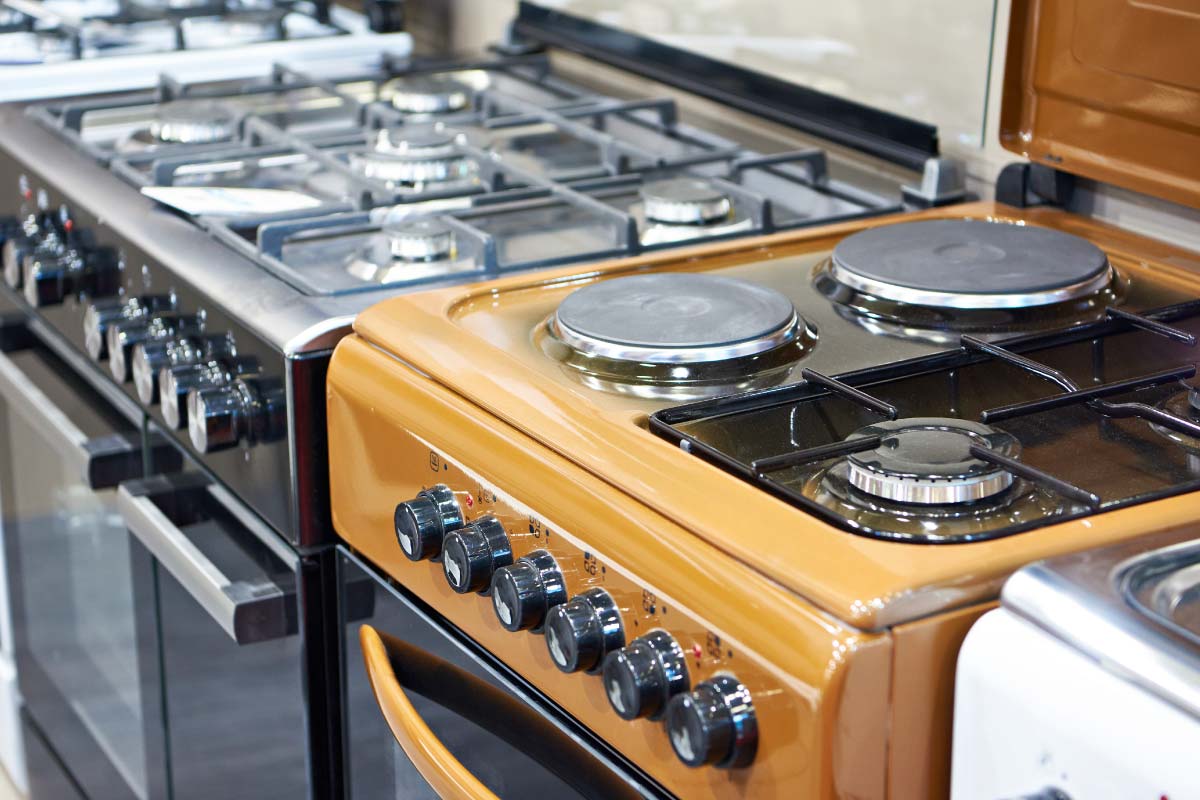
Gas stoves have taken a big reputation hit lately. Once viewed as a luxury feature, gas ranges have come under fire in recent years after studies showed that they contributed to unhealthy indoor air quality. These kinds of stoves have also been criticized for being less sustainable than electric stoves. The gas backlash garnered so much attention that it led to changes in the law in some places. Last year, New York became the first state in the country to ban the use of natural gas and other fossil fuels in most new buildings, and other states and cities are also considering legislation. But despite the potential health concerns and less eco-friendly nature of gas stoves, are they still in demand from renters?
Out of gas
A large share of Americans cook with natural gas in their homes. According to the U.S. Energy Information Administration, around 38 percent of homes in the U.S. use natural gas. But electric cooking is on the rise. Last year, induction cooktops accounted for 18 percent of all cooking sales and have been growing in double digits the past three years, outpacing all non-induction competitors, according to one report. Cooking with electric stoves and ranges is also growing in popularity with renters. In a renter preferences survey taken by the National Multifamily Housing Council in 2022, 47 percent of respondents said that when thinking about their next home, they preferred a gas kitchen stove, while 31 percent said electric and 5 percent preferred induction. Two years later, a 2024 poll found that preferences for gas stoves dropped to 40 percent, while electric stoves increased to 35 percent, and induction increased slightly to 7 percent. In both years, 17 percent of respondents said they had no preference.
In late 2022, the organization We Act for Environmental Justice, a group that advocates for people of color and low-income communities in the U.S., sent a petition to the US Department of Housing and Urban Development along with other advocacy groups, calling on the agency to address indoor air pollution through electrification. The year prior, We Act launched a pilot program that replaced gas stoves with electric induction stoves and ovens in 20 public housing apartments in the Bronx borough of New York City and Buffalo, New York. Preliminary findings showed that by replacing the gas stoves, the levels of NO2 in apartments dropped by roughly 35 percent.
For developers of rental apartments, moving away from gas stoves in new developments is something that is happening more frequently. David Hovey Jr., president and COO of Optima, a multifamily development firm, said his firm began shifting to all-electric appliances, including induction ranges, with its latest projects in Scottsdale, Arizona, and Wilmette, Illinois. Both projects were completed last year, and the feedback from renters at the properties regarding the induction ranges was “overwhelmingly positive,” Hovey said. At the Illinois project, they found that many of the property’s residents were already familiar with induction cooking and had used the stoves in their own homes previously.
However, at the Scottsdale property, Optima initially faced some pushback, as most prospective renters were more familiar and comfortable with gas stoves. Optima’s strategy was to quickly address concerns through its onside teams, who were able to provide marketing materials and demonstrations of the benefits of induction cooking. “While a segment of renters may still prefer gas stoves, the advantages of induction cooking are increasingly recognized and valued,” Hovey said.
Electric future
Ted Weldon, president of Weldon Development Group, has been a believer in induction cooking since he was just a kid. The multifamily developer grew up in a home with an induction stove and has long understood what differentiates them from gas stoves, and is now incorporating the cooking systems into his own projects. He sees the main benefits of induction stoves as healthier, safer, less messy, space-saving, and more efficient. Induction stoves do not give off noxious gases, they are safer when it comes to potential burns, are a cinch to clean, save space, can be used as countertops when not cooking food, are more efficient than gas stoves, and can boil water much faster. “I think we’ve passed the tipping point on whether gas or induction is better,” Weldon said.
The biggest concern from renters that Weldon hears is whether they will need to buy new cookware for an induction stove. Induction cooktops use copper coils that transfer heat directly between two surfaces, requiring cookware like pots and pans to have magnetic and flat bottoms. “That’s probably the only pushback we face,” Weldon said. “The biggest thing we promote is that you’re not running the fire hazard of gas and fumes.” Many pots and pans sets that are induction-compatible are relatively affordable and could even be something an apartment building gives as a move-in gift to a new renter, he added.
With momentum growing for electric and induction stoves, coupled with an increasing number of companies, states, and cities eyeing net zero targets, the future is looking much more electric than gas. For his company, Weldon has committed to building all-electric in future projects. In the Chicago market, he is active; Weldon estimates that around 75 percent of the new residential buildings going up will have induction cooktops. “If you’re looking to future proof your building, you don’t have to run gas through the building to every single unit. You don’t necessarily save money, but look at the benefits to renters versus the negatives,” Weldon said of induction cooktops.
Gas stoves remain a widely used appliance in many rental apartments, but the increased pressure to move away from fossil fuels and toward healthier, renewable sources of energy is driving many developers toward electric ranges in multifamily projects. Renters are increasingly worried about the health impacts of gas stoves, but for many, there is still a learning curve when it comes to the latest induction cooktops. But there has also been a strong opposition to calls for banning gas stoves. Elected officials have spoken out in support of gas stoves, with legislation even introduced in the Senate to prevent bans on natural gas ranges. And with a new Republican administration coming into office next year, movements to outlaw gas stoves in the future could face obstacles. Still, despite how the debate over electric versus gas stoves plays out politically, induction stoves are gaining ground with multifamily developers and multifamily occupants, and that’s a trend that likely won’t be changing anytime soon.






